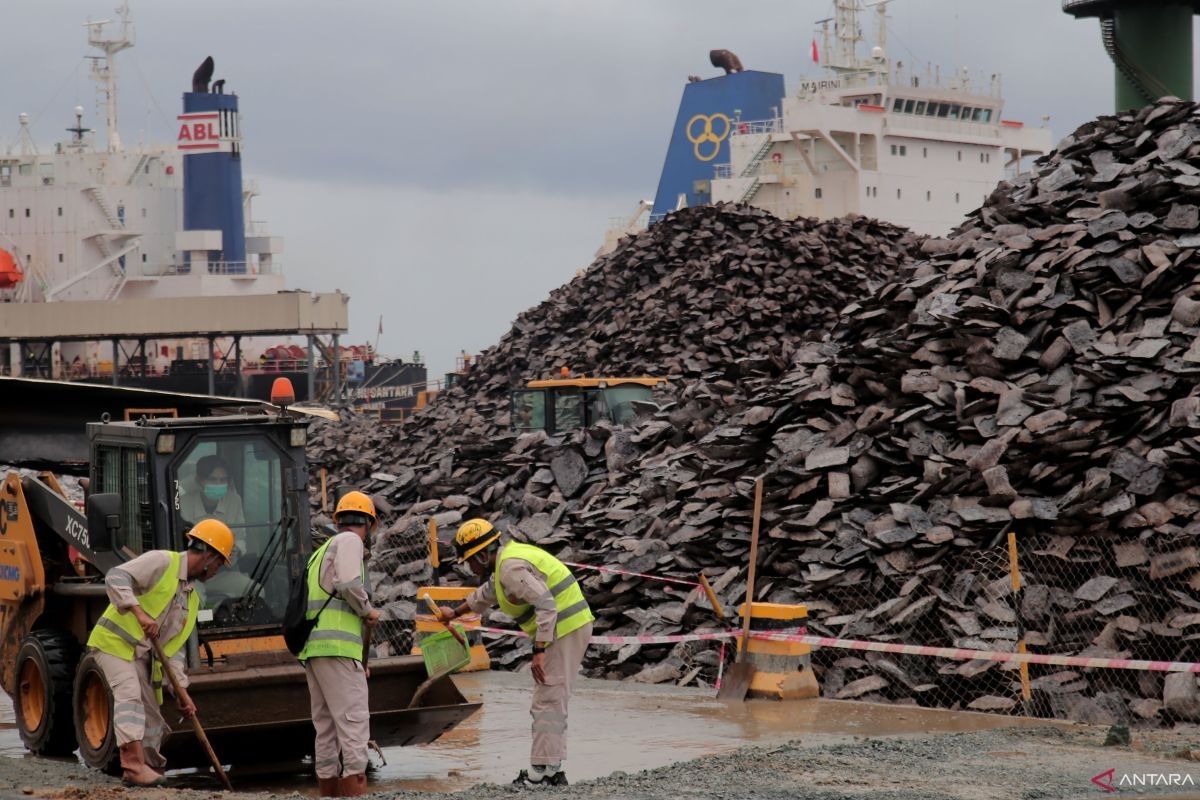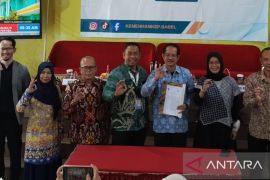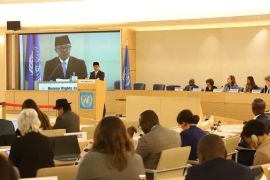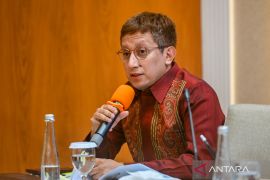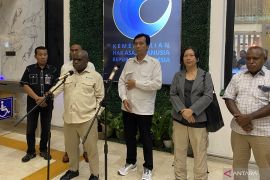The regulation is considered to be the first legal basis for people or workers to protect and fight for their rights against corporations.
With this presidential regulation, the government is also supporting the hopes of customary communities that often become victims due to their land being stolen by corporations and employees whose rights are taken away by companies.
To follow up on this presidential regulation, the Ministry of Law and Human Rights has begun forming a special task force at the national and regional levels to monitor business activities.
The national-level task force is chaired by Minister of Law and Human Rights Yasona H. Laoly and consists of officials from related ministries.
The officials have an agenda to carry out enforcement in the business environment. This agenda will be in accordance with the domain of the institution or ministry that is invited to collaborate with the Ministry of Law and Human Rights.
Meanwhile, the regional-level task force is chaired by each governor in each province, with heads of relevant offices as members.
The use of government officials from upstream to downstream is considered by several parties as the right step to protect the community's rights.
However, these efforts have not been truly impactful to company owners since based on the records of the Ministry of Law and Human Rights, several companies had yet to fulfill the requirements for protecting human rights.
Voluntary
Director of Human Rights Cooperation at the Ministry of Law and Human Rights Harniati stated that the National Strategy on Business and Human Rights is essentially still voluntary in nature and not yet mandatory.
This makes all fulfillment of human rights protection facilities in the company environment to be voluntary and not yet mandatory that can be regulated by the government.
This is reflected by several companies that were unable to pass the Business and Human Rights Risk Assessment (Prisma) application registration.
In the application, companies are faced with 12 question indicators related to facilities for fulfilling human rights that must be met, for instance, regarding the existence of labor unions and places for employees to file complaints.
From 2023 until now, only 31 companies have fulfilled human rights protection facilities based on this application.
Indeed, it is still too early to expect all companies to comply with the fulfillment of human rights in the business environment considering that the presidential regulation was just ratified last year.
It is deemed an adequate step if the government disseminates information to companies regarding business protection and human rights.
That way, the government can issue derivative regulations to take action against companies that violate the rules.
Nevertheless, the Ministry of Law and Human Rights sees the concerns of business players if the presidential regulation is mandatory.
It believes that many parties will think twice about starting a business, as more requirements would have to be fulfilled.
To this end, the ministry is still devising the right methods, so that the presidential regulation can slowly be accepted by all business sectors without appearing complicated. In this way, corporations, workers, and the community can work together to build Indonesia's economy.
Appreciation from labor unions
Responding to this presidential regulation, labor unions expressed their appreciation since concerns about human rights, often overlooked by companies, have finally received special attention from the government.
Chairman of the Federation of Blue Collar Workers Union Royanto Purba expressed hope that the regulation would serve as a spearhead to seek justice.
So far, the government, companies, and labor unions have not been on the same page in viewing the business sector.
The government has been viewing the business sector from the perspective of development, economic improvement, and other broader matters.
Companies themselves only see business as something that must generate large profits. At times, some of them do not even care about government regulations or the welfare of workers.
Meanwhile, trade unions focus on the protection of human rights, especially since several cases of violations had occurred, especially in the business sector that explores natural resources.
These three views often clash, so they are never completely in accord to benefit all parties.
The presidential regulation is considered a tool that brings together those three pillars to seek solutions, so that the needs of the government, companies, and workers can be fulfilled well.
Labor unions also believe in mutual loyalty. If the company is loyal to fulfilling and protecting human rights, then workers will also show their loyalty to the company.
The involvement of labor unions in the Business and Human Rights Task Force formed by the government is deemed crucial.
Purba assessed that labor unions must be involved in the task force, as they know better about the conditions and dynamics in the field between the company and workers.
It is believed that loopholes in human rights violations committed by companies will be easier to find if labor unions are involved in carrying out supervision at the national and regional task force levels.
Maximum efforts to disseminate information
Dissemination of information is one of the key steps that the government must take to uphold human rights protection in the business environment.
Several parties assessed that the fact that 269 companies did not qualify for the Prisma application does not indicate that they do not care about human rights.
It is possible that they do not know in detail what appropriate human rights protection is for the company's community and employees.
Business and Human Rights Researcher from Bina Swadaya Foundation Eri Trinurini Adhi cited that Japan is one of the countries to have succeeded in implementing human rights protection in the business sector.
Most companies in Japan understand human rights protection in companies, as the government carries out the dissemination of information maximally.
In fact, the status of regulation in the company is the same as in Indonesia, namely voluntary.
However, high-level awareness of human rights protection makes several companies in Japan respect the human rights of society and their employees.
This is also what makes the economy in the Japanese business sector progress.
Meanwhile, in Indonesia, throughout her research, Adhi found that several companies, in fact, sought her explanation about the presidential regulation that is aimed at protecting people's human rights in the business realm.
To this end, the Ministry of Law and Human Rights is expected to boost the dissemination of information regarding the regulation.
With maximum efforts to disseminate information, it is believed that more companies will care about the protection of human rights of their employees and the surrounding community.
Related news: Business, environment should go side by side: Ministry
Related news: Ministry invites business sector to contribute to mangrove restoration
Related news: Multi-business scheme will not affect forests negatively: ministry
Translator: Walda Marison, Raka Adji
Editor: Azis Kurmala
Copyright © ANTARA 2024
